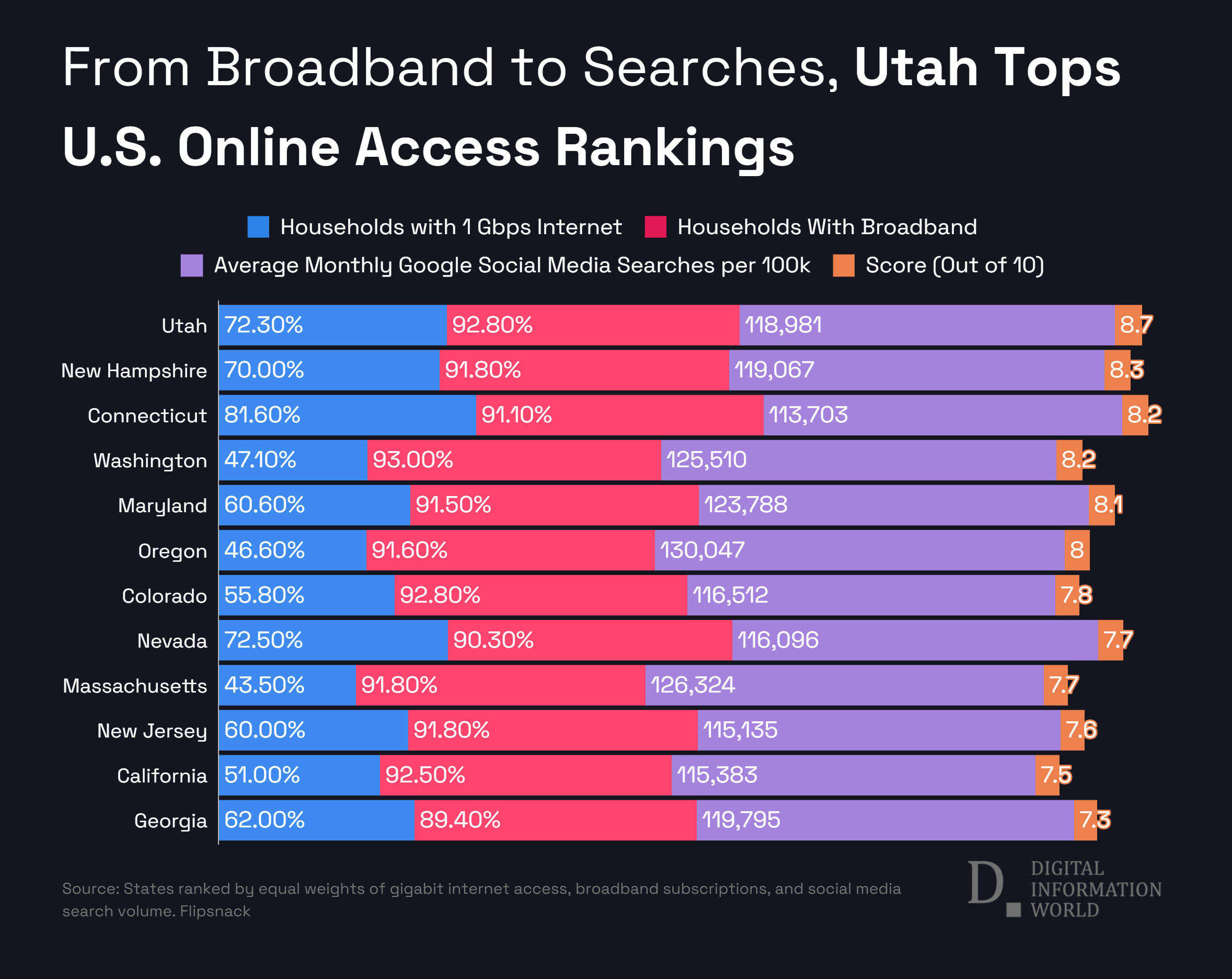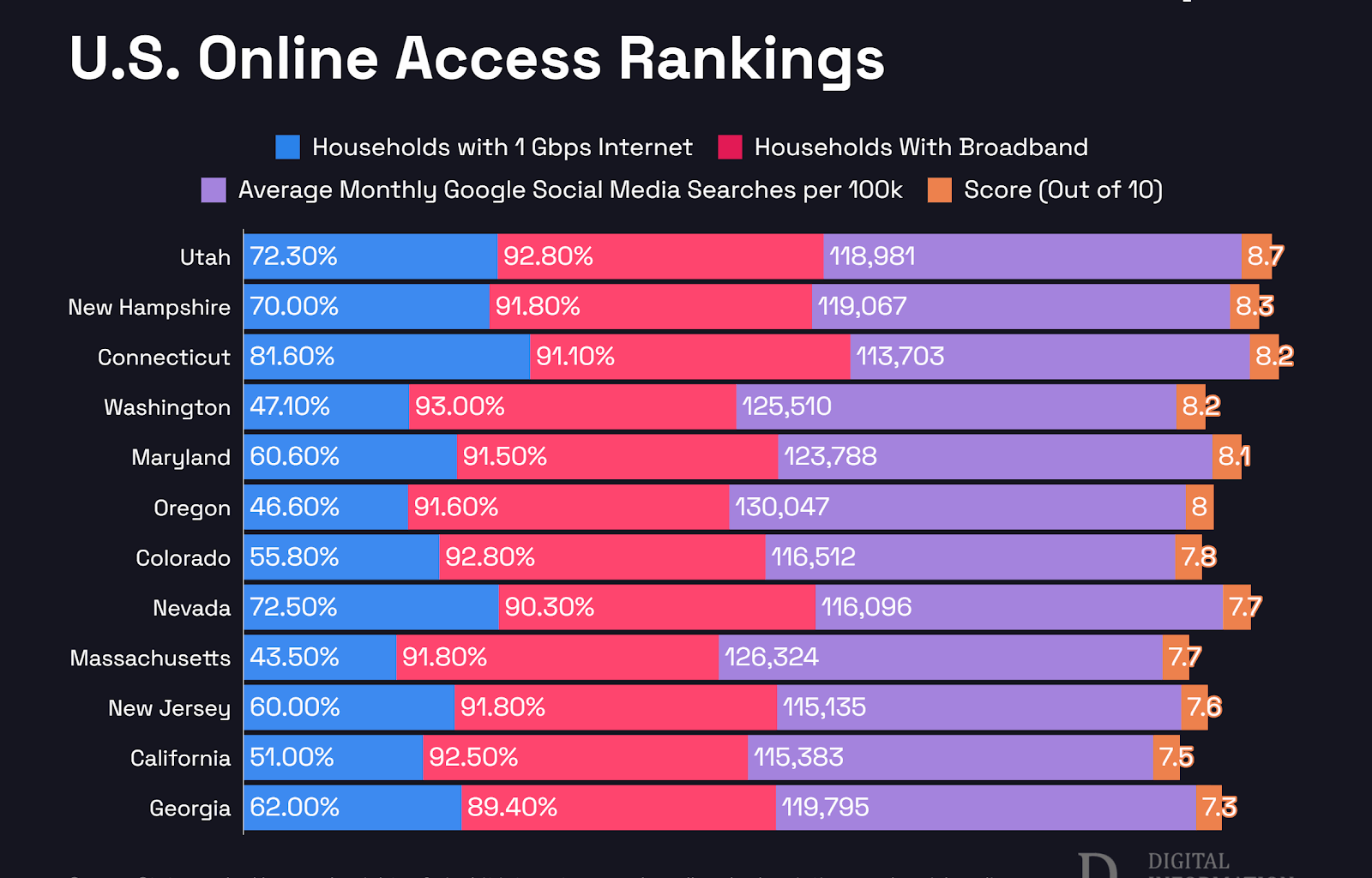A new set of figures comparing internet access and online habits has placed Utah in first place nationally, showing the state ahead on several measures of connectivity. The results come from an analysis of federal and search engine data that ranked all fifty states according to their access to high-speed internet and the volume of social media activity from their residents.
Researchers drew on information from the Federal Communications Commission, the U.S. Census Bureau, and Google’s search statistics, combining the findings into a score out of ten. They measured the proportion of households with broadband connections, the share that could use gigabit-level speeds, and how often people searched for social media platforms online, adjusting the search numbers for population size.
Utah’s Numbers
Utah’s final score was 8.7. Almost 93 percent of households there have broadband access, and more than 72 percent are connected to gigabit internet. Search behaviour also pushed its ranking higher, with nearly 119,000 social media-related queries for every 100,000 residents in a typical month.
Who Followed
New Hampshire came in second on the list, with an 8.3 score, while Connecticut and Washington tied for third at 8.2 each. Washington stood out for having the country’s highest broadband subscription rate at 93 percent, while Connecticut led in gigabit coverage at just over 81 percent. Maryland ranked fifth with 8.1, and Oregon followed closely at 8.0. Oregon also claimed the highest search rate in the nation at more than 130,000 social media queries per 100,000 people each month.
Colorado earned 7.8 and shared seventh position with Nevada and Massachusetts, the latter showing search numbers above 126,000 per 100,000 residents. New Jersey was next at 7.6, California scored 7.5, and Georgia rounded out the top ten with 7.3.
Strong Metrics, Lower Rankings
Some states performed well in one measure but not across the board. North Dakota, for example, recorded the highest proportion of gigabit connections in the U.S., almost 85 percent, yet its overall score was 19th due to lower online search activity. Kentucky, with gigabit in 73 percent of homes, still ranked 36th overall.
The Other End of the Scale
Mississippi sat at the bottom of the list with a score of 2.2. Broadband subscriptions there reach only 81.9 percent of households, and search activity for social media platforms is the lowest recorded, at about 81,500 monthly queries per 100,000 people. West Virginia followed with 2.6, Louisiana scored 3.2, and both New Mexico and Alaska came in at 3.4. Alaska’s result reflects limited high-speed availability, with gigabit connections in fewer than eight percent of households.
What the Data Shows
The gap between the most and least connected states is wide. Places with stronger infrastructure tend to see higher use of social media, while those with slower or less reliable access show lower engagement. The figures suggest that where high-speed connections are common, online activity becomes a more regular part of daily life.
 H/T: Flipsnack.
H/T: Flipsnack.
Read next: Why Many Computer Users Are Better at Spotting Malware Than They Think

